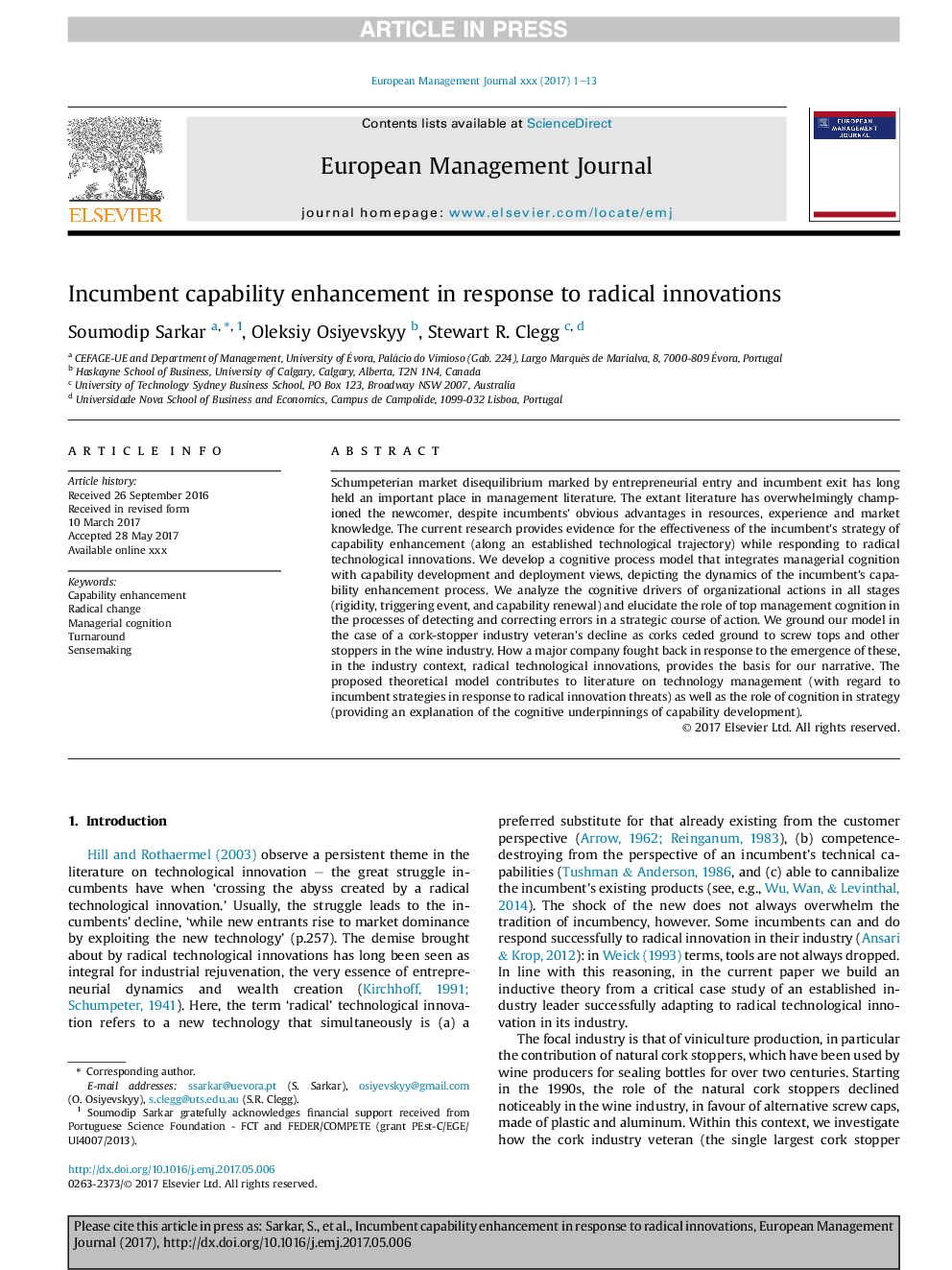ترجمه فارسی عنوان مقاله
افزایش توانایی در توانایی پاسخگویی به نوآوری های رادیکال
عنوان انگلیسی
Incumbent capability enhancement in response to radical innovations
| کد مقاله | سال انتشار | تعداد صفحات مقاله انگلیسی |
|---|---|---|
| 95155 | 2017 | 13 صفحه PDF |
منبع

Publisher : Elsevier - Science Direct (الزویر - ساینس دایرکت)
Journal : European Management Journal, Available online 19 June 2017
ترجمه کلمات کلیدی
افزایش توانمندی، تغییرات رادیکال، شناخت مدیریتی، بچرخ، حسادت،
کلمات کلیدی انگلیسی
Capability enhancement; Radical change; Managerial cognition; Turnaround; Sensemaking;
ترجمه چکیده
عدم تعادل بازار شومپیتری که با ورود کارآفرینی و خروج حاکم مشخص شده است، مکان مهمی در ادبیات مدیریت داشته است. ادبیات در حال حاضر، به رغم منافع واضح شرکت کنندگان در منابع، تجربه و دانش بازار، به شدت از تازه واردین حمایت می کند. تحقیق حاضر شواهدی را برای اثربخشی استراتژی حاکم بر ارتقای توانمندی (در کنار مسیر تکنولوژی تاسیس شده) و پاسخ به نوآوری های تکنولوژیک رادیکال ارائه می دهد. ما یک مدل فرآیند شناختی را توسعه می دهیم که ادراک مدیریتی را با توسعه توانایی ها و دیدگاههای گسترش، ادغام پویایی فرآیند تقویت توانایی های شرکت کننده را ادغام می کند. ما رانندگان شناختی اقدامات سازمانی را در تمام مراحل (استحکام، رویداد و بازسازی توانایی) تحلیل می کنیم و نقش شناخت مدیریتی بالا را در فرآیندهای تشخیص و اصلاح خطاها در یک دوره استراتژیک عمل توضیح می دهیم. ما مدل خود را در مورد صنعت چوب پنبه صنعت متوقف شده است، زیرا کورک ها زمین را به پیچ و مهره های دیگر و در صنعت شراب متصل است. چطور یک شرکت بزرگ در واکنش به ظهور اینها، در زمینه صنعت، نوآوریهای تکنولوژیکی رادیکال مبارزه کرد، مبنایی برای روایت ماست. مدل نظری پیشنهادی در ادبیات مدیریت فناوری (با توجه به استراتژی های فعلی در واکنش به تهدیدات نوآورانه نوآوری) و همچنین نقش شناخت در استراتژی (ارائه توضیح مبانی شناختی توسعه قابلیت ها) کمک می کند.

